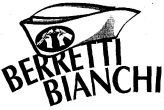 Homepage
Homepage
![]()
News,
witnesses, information
![]()
| |
| Gaza Beach, a Special Day |
Tuesday,
June 25
|
|||
|
It should be noticed that this "shit business" is by no means a trifling matter; the pump has already been out of service for more than four months with the result that sewage was flowing from the home toilets and remaining nearby. With the heat in these parts, the flies and other nice fauna the risk of an epidemic has been increasing every day. At 12.00 we enter the deserted security strip - more than two dozen Europeans holding French and German passports and we Italians; two from Operation Colomba (Dove) and Fabio, Luca and myself of the White Berets. A little more than a dozen Palestinians are also in the group including workmen, journalists and CHR officials. We walk in a compact group towards the pump with the Egyptian garrison building behind us, the pump in front and beyond the pump in the distance the tower with the Israeli flag. Once the pump has been reached the internationalists form a line placing themselves between the Israeli tower and the pump and immediately the Palestinans' mechanical scraper with the driver and a Frenchman on top set about levelling the area and the workmen get down to the job. The adults inside the houses facing the strip filled with rubble have to work hard to hold back the children who are excited by this extraordinary novelty. One of them leans out too far from the tumbledown walls and heaps of rubble separating the houses from the security strip so the soldiers start firing. None
of us moves, we show our passports and remain with an arm upraised
waving our Bordeaux University booklets as a unique guarantee
of immunity. Among the French there is a naturalised Palestinian
woman with a hand-kerchief on her head, the classical covering
for women round here. There is also a Moroccan woman wearing the
traditional blouse of her country. One of the workmen climbs onto a lamppost to mend it, there in the middle between us and the pump. We all look at him and hold our breath. In the meantime one of the CHR men has told me that the mayor is on the phone with the Israelis and they are coming to an agreement for the workmen to be able to finish their work in peace. I barely manage to control my fear and can see Fabio and Luca still with the others at their place in the first line-up, still motionless under a sun which is now at its zenith, not a breath of air, even the shadow seems to have disappeared. I regain courage and walk towards them looking carefully where I place my feet in that tangle of floors and lighting supports swallowed up by rubble and rods of the reinforced concrete sticking out everywhere. I reach the boys and, to lower tension and regain courage we start singing Bella Ciao to the applause of those present. A little later the tension slackens and trays with boiling tea and iced cola arrive. An hour later and lunch, rice with meat, also arrives and so the human shield action becomes a picnic and then an anticlimax until 17.00 when the repairs are completed and we all return from where we came. Before returning to Khan Younis the bus stops at the house of one of the families of the six Palestinians killed the morning before at around 8.00. They
were travelling in a taxi on the outskirts of Rafah, probably
going to work. One of them was wanted. Two Apache helicopters
roared in over the horizon and one fired an air to ground missile
at the taxi immediately killing the six inside. More than a dozen
occupants of cars in front of and behind the taxi and passers-by
were wounded, some very seriously who will die in the hospital
in Rafah in the coming hours. Home
at last! Another day tomorrow. Some
of the photos of the "human shield" taken by Fabio can
be seen on Greetings, |
||||
|
|
||||